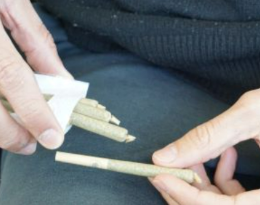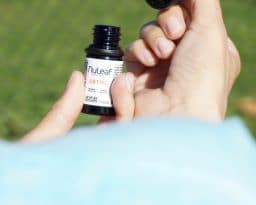How to Keep Safe During Mosquito Season

By Sallie James
Florida Department of Health in Broward County
BROWARD COUNTY – You’re trying to fall asleep when you hear that barely-audible, high-pitched buzz that tells you a bloodthirsty mosquito is waiting to take a bite.
It can be annoying, but mosquitoes are more than just annoying. They can carry serious diseases like encephalitis (West Nile, St. Louis and Eastern Equine), yellow fever, dengue and malaria and Zika. Mosquitoes bite in the day AND the night, and their bites can be itchy and painful.
As mosquito season rolls into full swing, it’s time to take preventative measures to safeguard yourself and your home.
The bug to watch for is the Aedes aegypi mosquito, a small, black one with white markings on its legs and one in the form of a lyre on the upper surface of its thorax. These mosquitoes live close to people, right outside or inside your house. They specialize in biting humans, and stay active all day.
Preventing bites is the best way to stay safe and there are lots of easy ways to accomplish this. Most importantly, drain standing water in and around the house.
- Keep flower pots and saucers free of standing water
- Check old tires, buckets, toys, and birdbaths for pooled water
- Flush out water-holding plants like bromeliads with a hose every week
- Discard items where rain or sprinkler water collects and clean pet water bowls twice a week
- Check your house for torn window screens and keep windows and doors closed to prevent mosquitoes from coming inside
- Use air conditioning
- Cover cribs, strollers and baby carriers with mosquito netting
“Mosquitoes typically breed in very shallow water, a capful of water or a puddle behind a bush,” explained Anthony Vomero, Environmental Health Administrator for the Florida Department of Health in Broward County. “The average homeowner should make sure if they have potted plants they dump any water that collects and check anything that could hold water.”
Aedes aegypi can even breed inside the home, in spots where water drips and collects.
Remember, as the weather gets warmer, mosquito activity increases. If you go outdoors on a buggy night, wear shoes, socks, long pants and long sleeves. Spray your skin and clothing with an insect repellent that contains DEET or other approved ingredients. Try using a natural mosquito repellent spray.
Draining standing water is the most effective way to stop them from reproducing.
“Mosquitoes multiply quickly, but you can stop them in their tracks,” said Dr. Paula Thaqi, Director of the Florida Department of Health in Broward County. “Practice ‘drain and cover.’ When you dump standing water, you eliminate the breeding ground for mosquito larvae and getting rid of the source is the best way to avoid being bitten.”
Mosquito eggs that are laid in shallow water can hatch in a day or two. The larvae grow fast, turning into a pupa that quickly develops into a full-grown mosquito. The life cycle, from egg to adult mosquito, takes eight to 10 days. The pupae become flying mosquitoes in two to three days.
Stop mosquitoes from breeding by draining standing water, and stay healthy!
Request information on mosquito control: DOH-Broward, 954-213-0607.
Report infestation: In Broward, County Mosquito Control will consider spraying your neighborhood if you have a large number of mosquitoes. 954-765-4062 or http://www.broward.org/Mosquito/Pages/MosquitoServiceRequest.aspx





